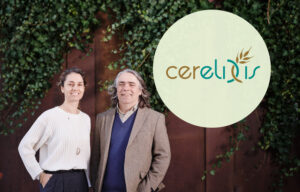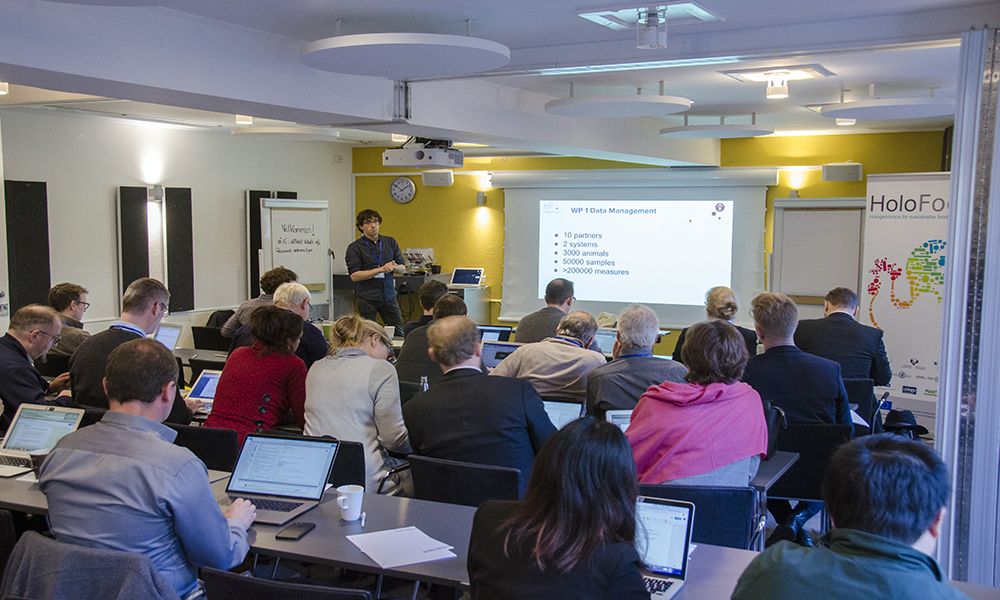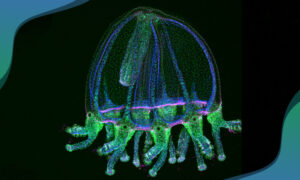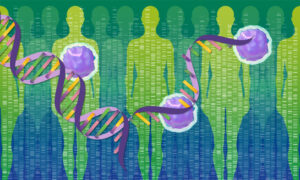
Harnessing the microbiome to improve meat production
As the world’s population grows and meat consumption increases, we need to reduce the carbon footprint of meat production and its over-reliance on antibiotics.

New feed additives could enable healthy animal growth and balance animal gut microbes. However, there is still much we don’t know about how food additives, such as pre- and probiotics, impact an animal’s microbiome. Probiotics are beneficial bacteria found in certain foods, while prebiotics are what these beneficial bacteria “eat”.
The HoloFood project aims to explore the biomolecular and physiological processes affected by feed additives for animals with different genetic backgrounds, and raised in different controlled environments.
The project, which is focusing specifically on chicken and salmon, uses new technologies and an innovative holo-omic approach. This means researchers analyse the host animal and the microscopic organisms living in its gut, also known as the microbiome. The project characterises an animal’s microbiome, genome, transcriptome and metabolome, and how these interact in relation to key performance indices and animal welfare issues.
This approach enables researchers to move beyond showing that feed affects the physical make-up of an animal – for example growth, quality, health, welfare – but to actually understanding how the feed, host and microbes interact to yield differences in animals.
EMBL’s European Bioinformatics Institute (EMBL-EBI) is contributing bioinformatics and data management expertise to the project. With collaborators, EMBL-EBI will develop a HoloFood database of feed-host associated biomolecular information. The data will be openly available to all researchers and animal producers, enabling them to develop better feed alternatives. The project has already identified novel sustainable feeds for salmon, based on seaweed and blue mussels.
Read more about the potential of molecular biology in the fight against climate change.
This project has received funding from the European Union’s Horizon 2020 research and innovation programme under grant agreement No 817729.


